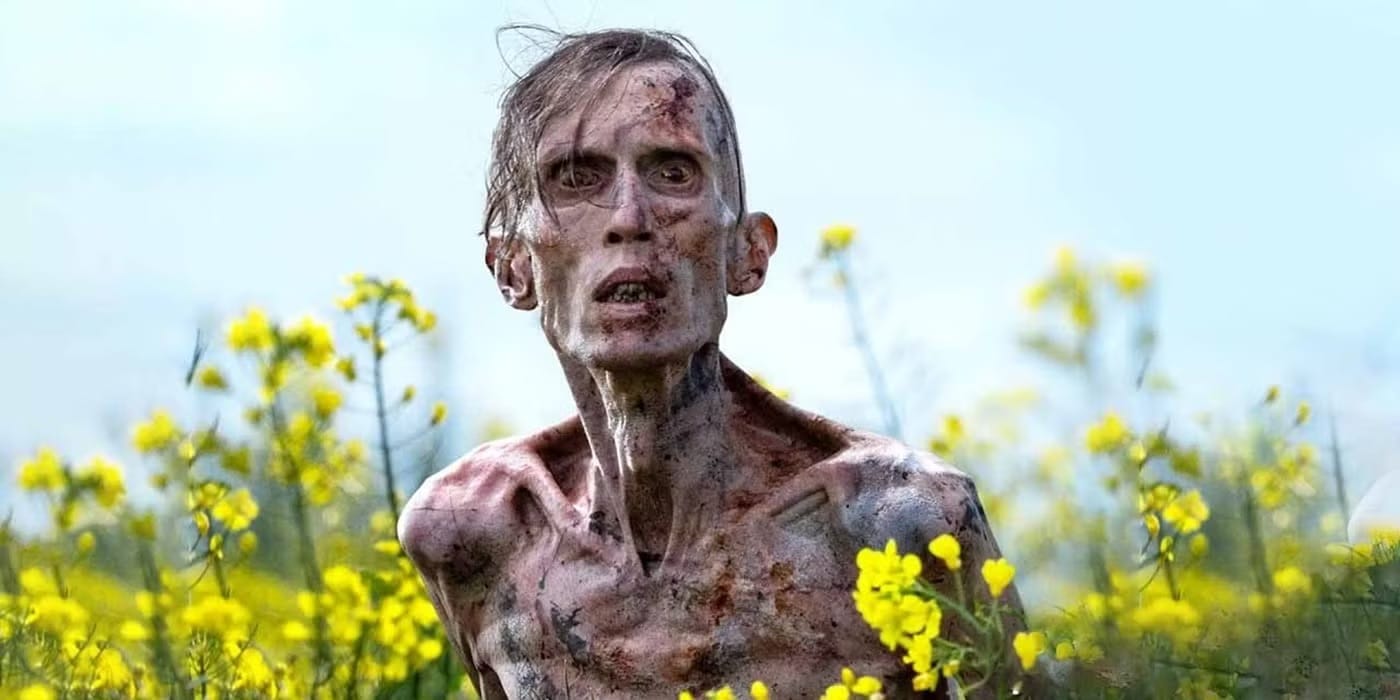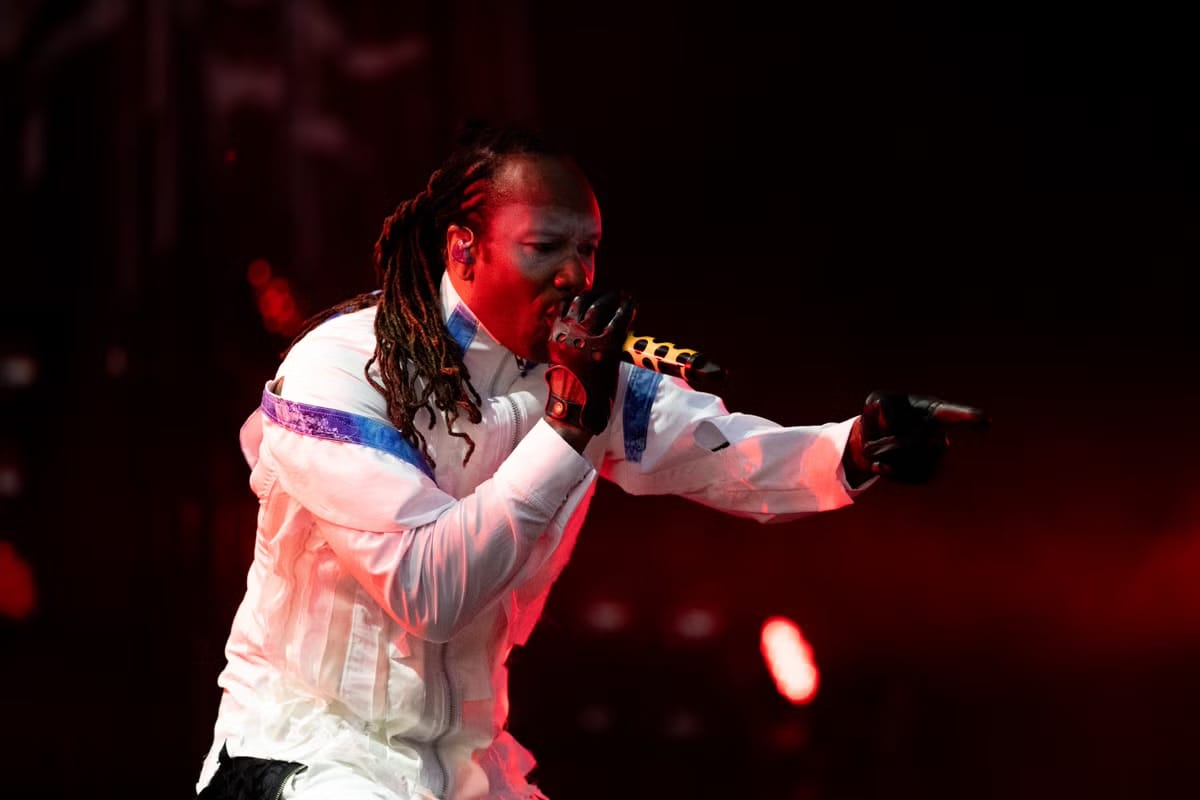I HEARD YOU WANT YOUR COUNTRY BACK

Watching 28 Years Later so soon after Glastonbury weekend has left me in a confused blur about what’s real and what’s fiction. With what felt like an actual rage virus rampaging through the Somerset festival—thanks to several acts, such as Bob Vylan and Kneecap, seemingly desperate to stir up controversy to distract from the fact that their music really isn’t very good—I’m not sure which zombies were more effective: director Danny Boyle’s or festival organisers Emily and Michael Eavis’s.
Now that I think about it, there were definite concurrent themes both at Glastonbury and in 28 Years Later, perhaps proving that there's something in the air—something no doubt indicative of the declinist, dystopian zeitgeist we’re currently living through in Starmer’s endlessly incompetent Britain, which seems to be hurtling toward a zombie apocalypse of its own. Watching many of the middle-class activist zombies (the flag-of-the-month brigade) in the crowds at Glasto, it was hard not to see them as a sort of lazy army—one that, were it not for being creatures of safe spaces, might run riot once the music stopped, like a revolutionary game of musical chairs.

We've certainly been on a journey since Danny Boyle's opening ceremony for the 2012 London Olympics, which celebrated everything from Brunel to James Bond and seemed to suggest there was still enough national self-esteem left to last a few decades—before the country then quickly succumbed to its miserable decline and further descent into collective self-loathing, thanks to those nowhere men and women who prefer to exist in an ill-defined corporate world of Teletubby globalism and fake activism, rather than in a place rooted in authentic heritage and culture.
Boyle's 28 Years Later is undoubtedly a more accurate barometer of where the country is now than it was back in 2012. It was poignant to see references to both the Sycamore Gap (before its destruction) and Antony Gormley’s Angel of the North among the ruins of a zombie-ravaged Britain—nicely contrasted with Ralph Fiennes’ Dr. Kelson’s Tower of Skulls—serving as a reminder of the things that endure and the things that don’t. The ancient and the modern coexist in an uncertain landscape here, where new culture asserts itself and old culture defends itself—a metaphor that could just as easily be applied to Glastonbury.
There’s surely potential for a folk-horror zombie film set at an English music festival. I can see it now: an army of zombie boomer rockers, multiple Rod Stewarts in tight trousers, fighting off "punk" rappers with tattooed chests, as blood and music genres fuse into a clash of violence and sound.
I heard you want your country back
Shut the fuck up
I heard you want your country back
Uh-uh, you can't have that
I heard you want your country back
Shut the fuck up
I heard you want your country back
Well shit, me too
It was grimly funny, though, to see music fans—raised on salad bags—championing a free Palestine while cheering on an angry mutant on stage who tells them they can’t have their own country back. Irony killed itself several times over last Saturday afternoon on the West Holts Stage. Sovereignty for thee, but not for me.
"Oh, Jeremy Corbyn!"
Certainly, in the post-Jeremy Corbyn era, it seems some of the welly-wearers are struggling to find a new prophet to latch onto. They appear content to settle for mediocre talents who lead their back-of-the-bus choruses—just enough to make them feel engaged with something, anything, other than their own hollowed-out sense of cultural identity. This is the "anywhere" crowd—the kind who take genealogy tests hoping to prove they’re not from the very place where they love to party. Feeling connected is one thing, but being collectively disenchanted provides its own type of heady draw.

"We are the noise makers. We're waking up the whole of England" - MC Maxim of The Prodigy
Ironic, perhaps, that it was The Prodigy who delivered the most unified set of the weekend—and would be my preferred choice of band to counter the zombies running amok both on Glastonbury’s stages and in the fields of Boyle’s 28 Years Later. Secure in who they are, they possessed that indefinable aura of magic—like Johnny “Rooster” Byron in Jez Butterworth’s Jerusalem—that seems to awaken the ancient spirits beneath our feet, warding off the imposters determined to colonise England for themselves.